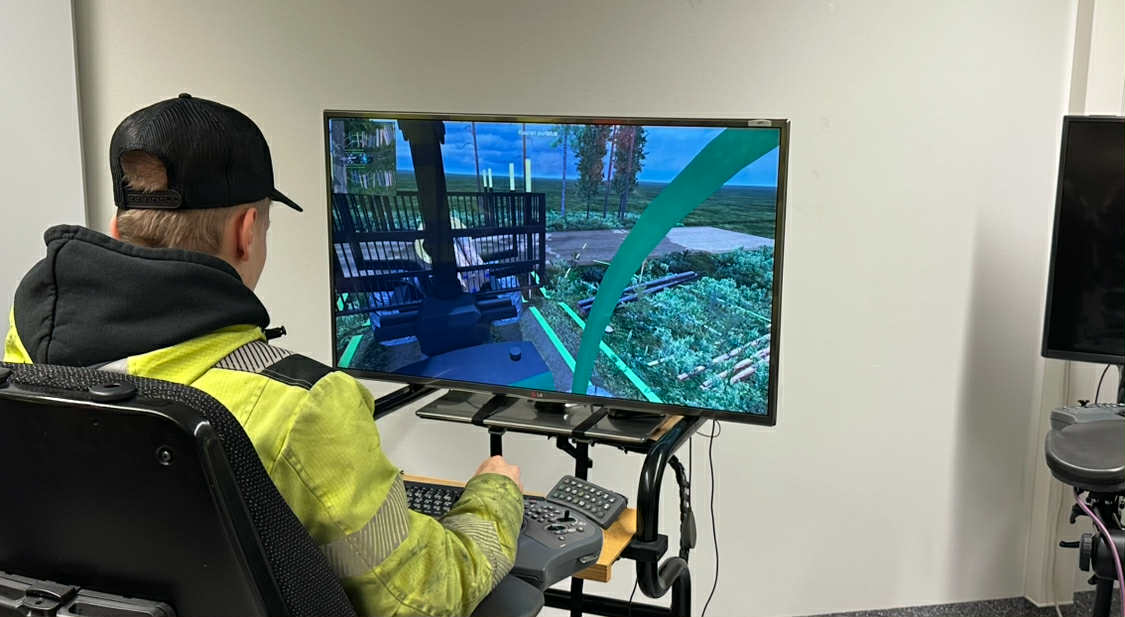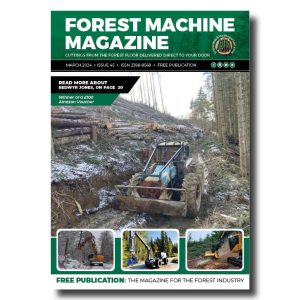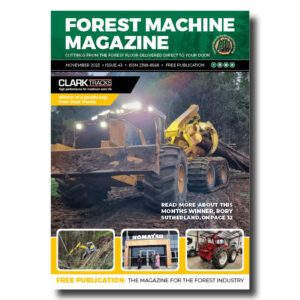With a forestry skills shortage crisis looming on the UK horizon here is a proposal that will offer a short term solution.
Forestry Skills Shortage-It is unfortunate that there are currently no institutions in the United Kingdom offering practical, hands-on training programs for forest machine operators. Previously, Jim Wilmer and Sons Timber Harvesting was one of the very few (perhaps only) providers for young individuals seeking to embark on a career in forestry; however, volatile timber market conditions have led to the cessation of this opportunity.

-
That’s a remarkable amount of work hours for a single machine, the Norcar 600 owned by Erkki Rinne is taken well care of, it even has the original Diesel engine.
-
Kieran Anders is a forestry contractor working in the lake district. His work involves hand cutting and extracting timber using a skidder and tractor-trailer forwarder.
-
It is not possible to eliminate chain shot, but there are simple steps that can be taken to reduce the risk.
-
Arwel takes great pride in the fact that the mill has no waste whatsoever, “the peelings are used for children’s playgrounds, gardens and for farm animals in barns in the winter and the sawdust has multiple uses in gardens and farms as well.
-
Timber hauliers need to encourage young blood in, and also look after the hauliers we have, we need make the sector a safe and positive place to work.
FIND US ON
Throughout my five decades of experience in the field of forestry, I have observed that timber harvesting has undergone a continuous cycle of fluctuations, characterised by successive peaks and troughs. Fortunately, the peaks have consistently outweighed the troughs, resulting in a net positive trajectory for the industry.
Although the demand for timber is currently low, we still have an ageing workforce that will soon need replacement, and with very few people entering forestry, this is a concern for everyone.
The Institute of Chartered Foresters has warned that the forestry sector is facing a critical forestry skills shortage, particularly as the UK has ambitious tree planting, woodland expansion and climate targets to meet.
Our forestry workforce from planting through to harvesting needs to increase by 72% in Scotland by 2027, by 86% in England, and 72% in Wales by 2030 to meet the rising demand. When we harvested much lower volumes of timber in the last century, we had forestry colleges at Newton Rigg, the Barony, and Inverness, all offering practical and machine operator courses. I worked at the Barony in 1999, where we ran a three-month FMO course. Three days were spent working in the forest, operating Valmet 840 forwarders that extracted timber harvested by the Forestry Commission. One day was dedicated to the engineering workshop, where I learned about maintenance and servicing. Another day was spent in the classroom, covering risk assessments, first aid, and other related topics
The successful students left after their course with a working knowledge of operating and maintaining forwarders, a first aid certificate and an FMOC licence.
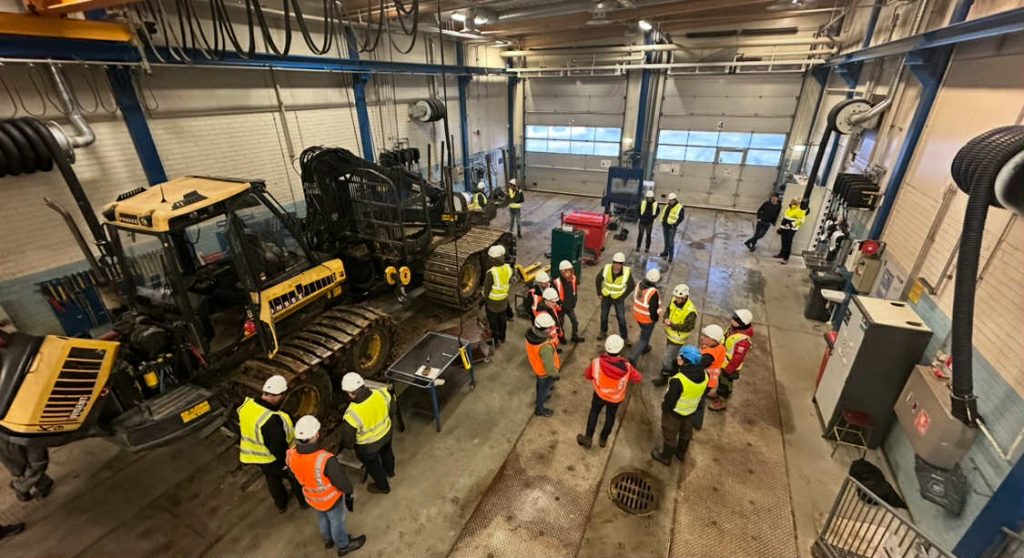
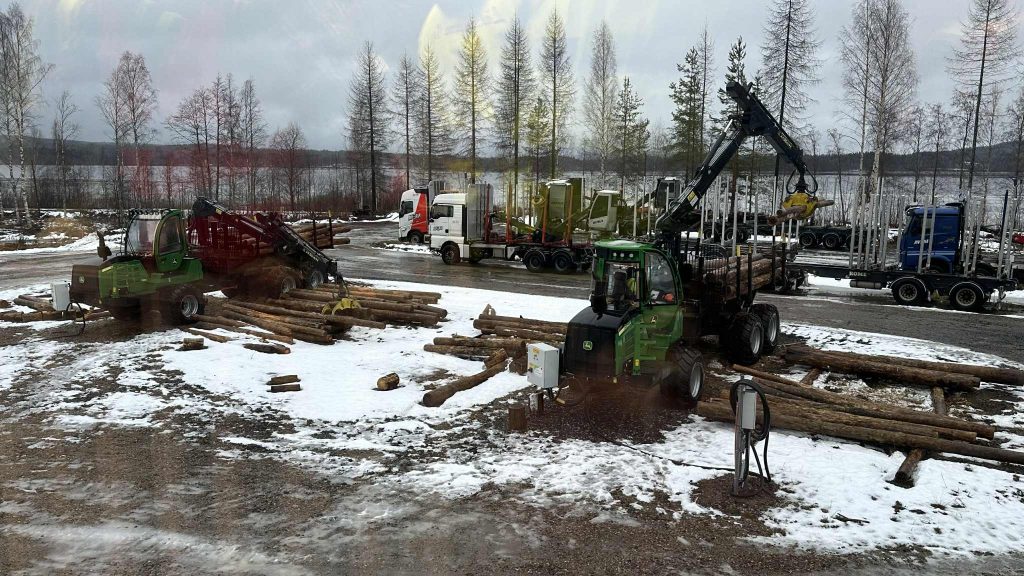
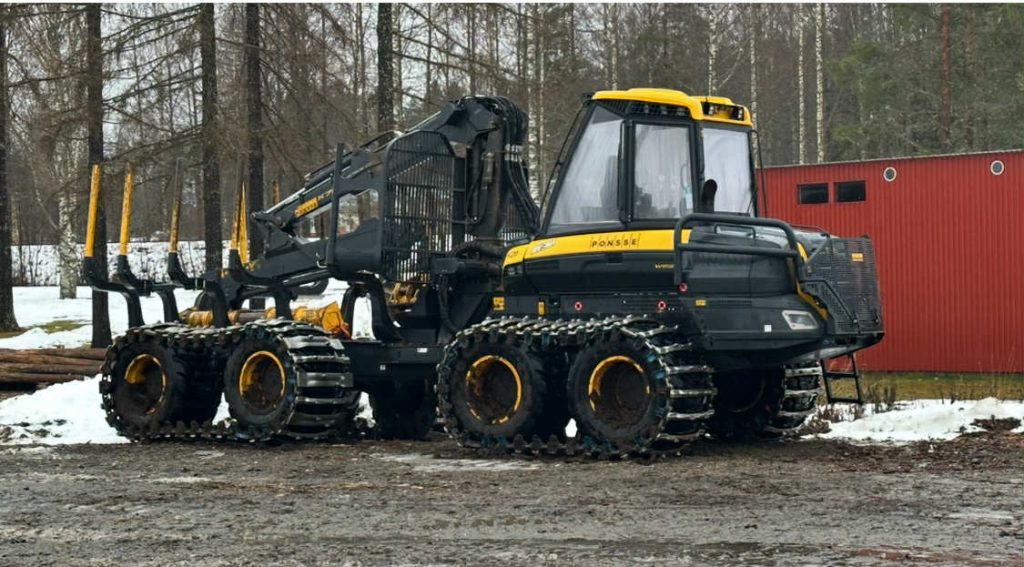
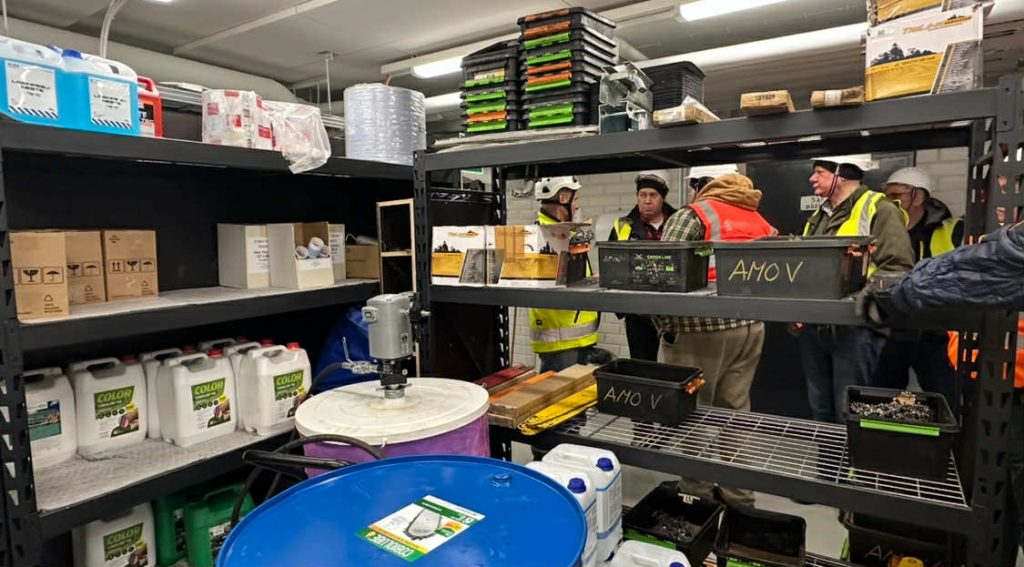
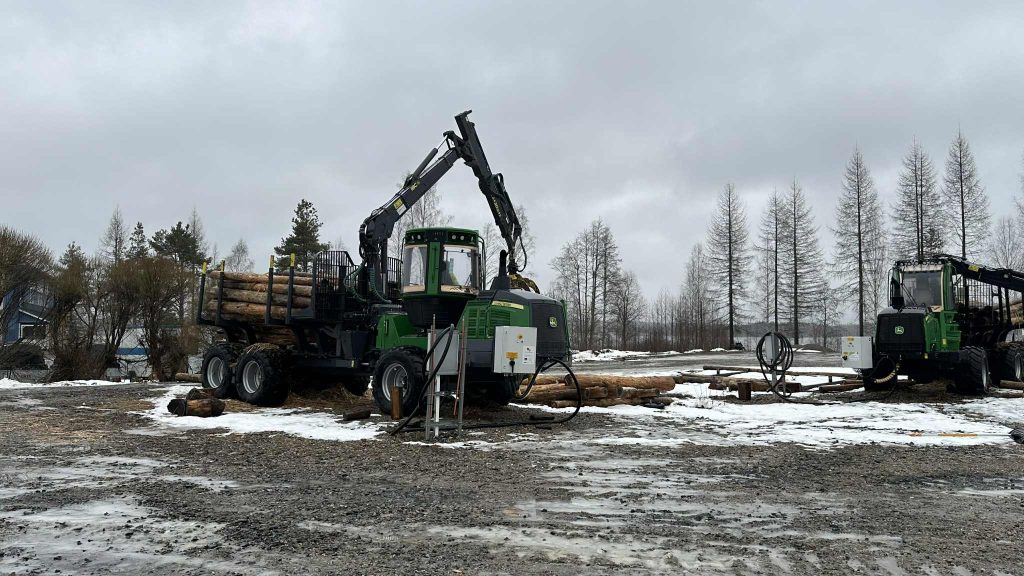
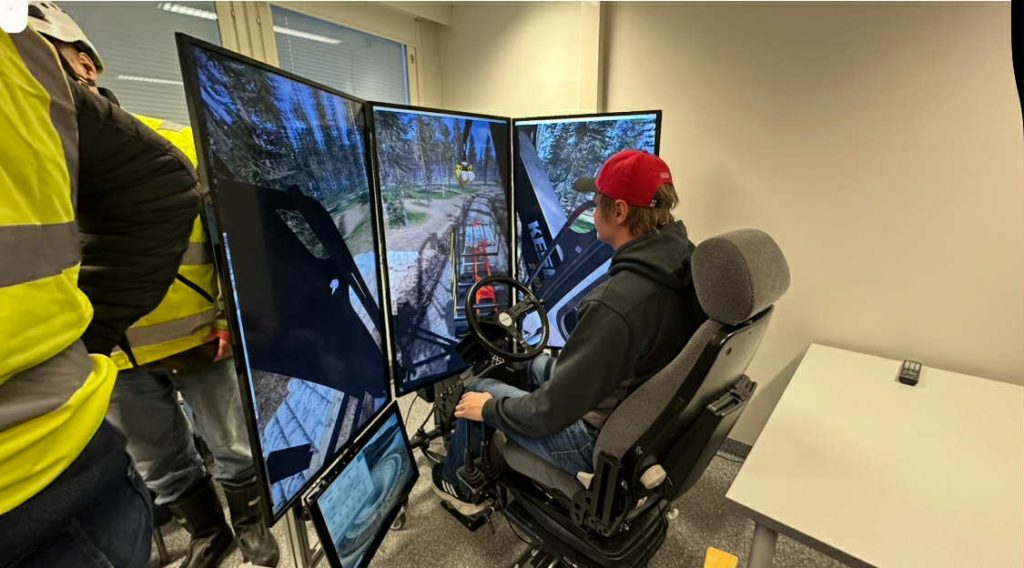
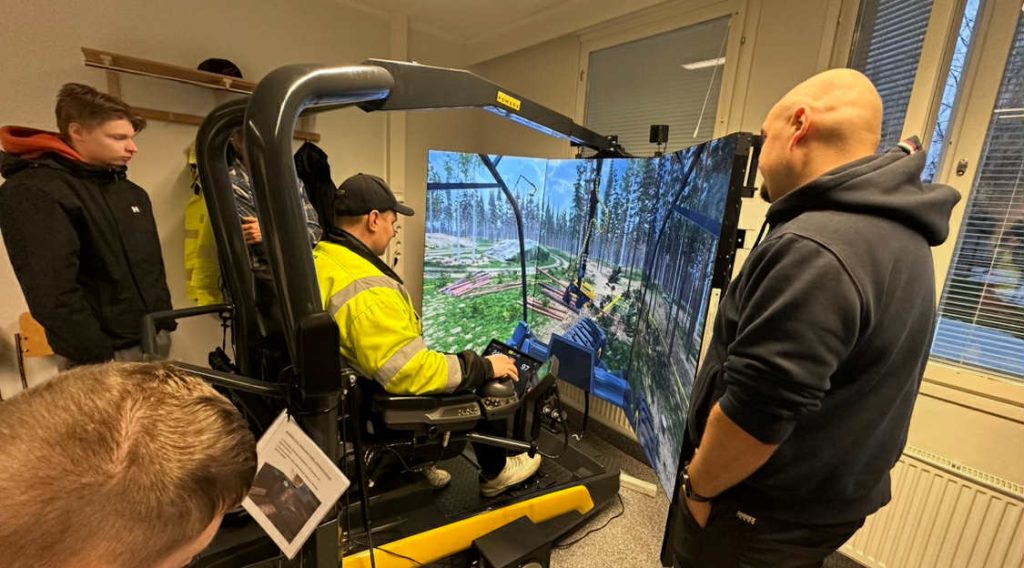
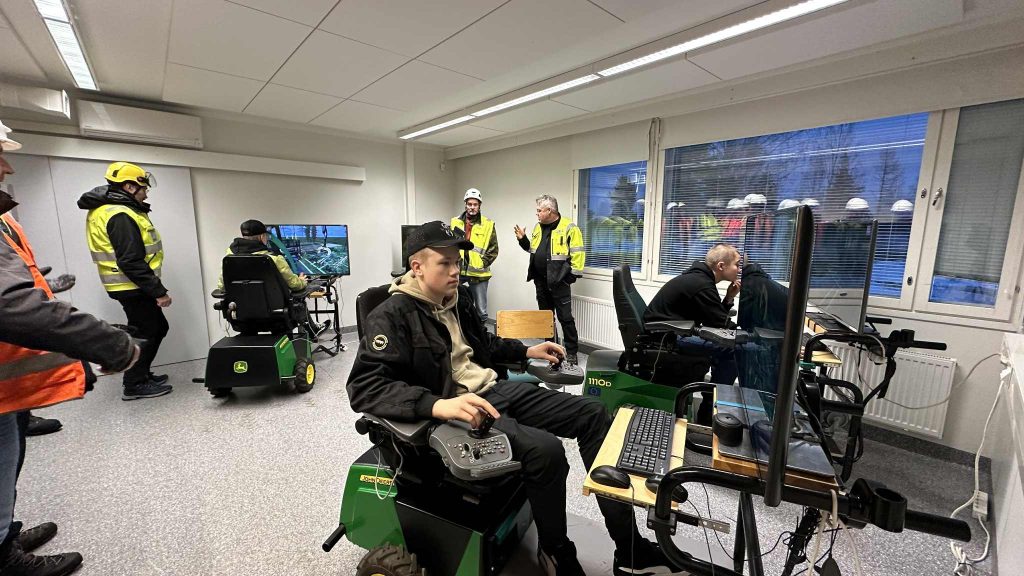
Forestry School at Valtimo in Finland
Newton Rigg has closed for forestry, but the Barony and Inverness are still operational, although today they offer limited machinery training. They are mainly focused on degree forestry courses, arboriculture, and some small equipment courses, such as chainsaws.
Also, the days of jumping on an older machine to learn have long passed; most forwarders and harvesters are now worth between £100K and £500K and are not something you can let a learner use. Small forestry companies also struggle to find the financial resources or the time to train apprentices. Certification and costly insurance have further prevented this from happening.
With an ageing and dwindling workforce, more needs to be done to boost recruitment, as many young people don’t even consider forestry as a career. This could be because forestry is not well represented in school curricula or career guidance, so schoolchildren and students are ignorant regarding the opportunities that are available.
Other issues that may occur include woodland management being hindered by a skills shortage, resulting in higher failure rates of tree growth, reduced biodiversity, greater risks of fire, pests, and diseases, diminished carbon capture, and the loss of traditional skills such as coppicing and woodland crafts.
Funding and education are necessary for a long-term solution, but in the short term, I have a suggestion that can help.
I have been in contact with some of the forestry schools in Finland, and they would be happy to assist with training.
One offer I have received so far is that the school will happily take a group of 8-10 UK students on a six-day course, from Monday to Saturday, and provide intensive training with simulators and machines in the forest. They will also show them how to maintain and inspect equipment, and how to organise work schedules.
The course will be tailored to each student’s individual skill level and available for beginners as well as those with some prior machine experience.
It would cost between €1,100 and €1,200 (EURO) per student, and this would include instruction, all meals and accommodation.
There is no quick fix for our current situation, but this could be a short-term solution until we can move forward with our own training facilities.
Although the industry is experiencing a slight slump, vacancies for operators still exist. These will increase tenfold once the demand for roundwood rises and we lack trained operators.
This isn’t just about harvesting timber but about the overall welfare of our forests. There would soon be a public outcry if forests became overgrown, neglected, and deemed unsafe places for the public to visit.
Let us see if we can all unite and progress with this; perhaps some of the larger forestry companies, traders, and sawmills could act as sponsors for candidates, as this would benefit the entire forest industry.
I am happy to help in any way I can and put you in direct contact with the schools
Please get in touch with me at forestmachinemagazine@mail.com and lets safeguard the future of our forests

Sign up for our free monthly newsletter here
Contact forestmachinemagazine@mail.com to get your products and services seen on the world’s largest professional forestry online news network.
#homeoflogging #writtenbyloggersforloggers #loggingallovertheworld
Written by loggers for loggers and dedicated solely to the equipment used in forestry operations.
